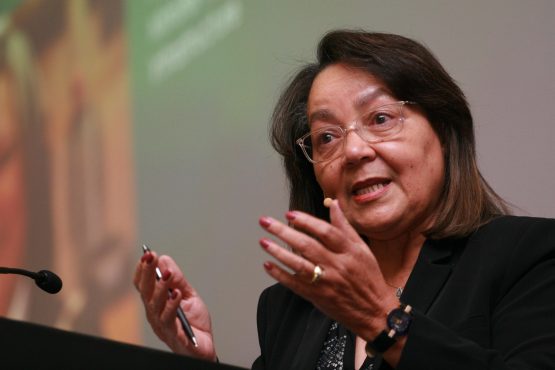The public should also note that such communication regarding funding for programmes will never come directly from the minister's office.

Public Works and Infrastructure Minister Patricia de Lille has warned the public against an e-mail scam using her name, and two other scams by fraudsters using the particulars of her department.
“My office has been alerted to an email scam purporting to be in my name as the minister of public works and infrastructure regarding funding from a programme between the BRICS New Development Bank and European Development Fund,” read a statement from De Lille.
“This is a fraudulent email scam and I am hereby issuing a warning to the public to please ignore this email.”
She said the first red flag to the public was the e-mail address from which the fraudulent e-mail was sent – [email protected] – which was not a government e-mail address.
“The public should also note that such communication regarding funding for programmes will never come directly from the minister’s office. Any business between the government and companies is processed through the formal supply chain management processes in line with prescripts of the Public Finance Management Act.
“Furthermore, as ministers and public representatives we are never involved in any procurement or administrative processes for funding proposals or disbursing of funding.”
De Lille has reported the scam to the Hawks as it is a criminal offence.
“Criminals are opportunists and slick in their operations but often there are dead give-ways, such as the email address in this case.”
Another warning sign is that the e-mail states that the funding will be offered through an off-shore bank.
“The government does not do business via off-shore banking.
“I, therefore, appeal to the public to be alert and not engage and respond to such emails as they are scams,” De Lille said.
She asked the public to report any similar scams to her office. The contact details can be found on the department’s website.
De Lille also blew the whistle on “fraudulent order scams targeting unsuspecting service providers”.
She said her department had recently discovered that fraudsters were using the names and e-mail addresses of departmental employees to lobby bribes from service providers who bid for tenders.
“The fraudsters create email addresses that resemble the department’s genuine emails to solicit bribes from service providers. They obtain tender information from the National Treasury database.
“They would call a service provider in an attempt to solicit bribes and promise to influence the outcome of the award in their favour.”
She said the fraudsters had targeted supply chain management employees and the project services unit without any success.
“We have determined that this is a scam because of the telephone numbers and email addresses that the fraudsters use when contacting our service providers.”
She added they suspected that some insiders might be involved through their participation in the briefing sessions for the tenders.
“An investigation is under way to determine if this is the case. If it is found that employees are involved, they will face necessary disciplinary actions,” De Lille warned.
“My message to all officials is that corruption does not pay. It is an endemic problem in our country that undermines our democracy and impacts negatively on public service delivery, job creation and public trust in the government, as well as investor confidence in the country.
“This is a very serious offence and we will use the full might of the law to deal with this and bring those involved to book.”
In another scam, fraudsters have been targeting service providers in Johannesburg and Pretoria using the department’s letterhead and real names of departmental officials to invite service providers to deliver goods and services at government offices or some other locations.
“These goods disappear mysteriously in the hands of criminals, leaving victims with huge debt.
“We are extremely concerned about the use of employees’ names and contact details in this scam. This poses serious security and reputational threats and damage to officials whose names have been used by the fraudsters. The fraudsters also report officials as people who want to commit fraud and corruption.”
De Lille said the public should remember that the department would never send a request to an individual service provider or group of service providers without following proper supply chain management processes.
She cautioned the public to verify any correspondence they received in the name of the department that requested them to deliver large amounts of goods out of the blue with no tender advert being advertised.
To verify the authenticity of requests for services, the public can contact the following officials: Matomo Mabotja on 012 406 1328 or [email protected], and Lesole Matsotso on 012 406 1439 or [email protected].
Alternatively, the anti-corruption unit can be contacted on 012 406 1328.
For more news your way, download The Citizen’s app for iOS and Android.






